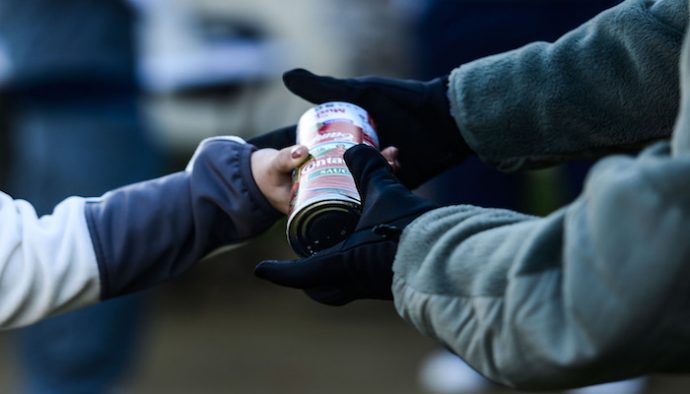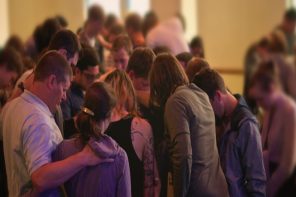Paul had a special relationship with the church at Philippi. There was not much unique about the Philippians themselves – the lived in a metropolitan area on the coast. Philippi was a well known city throughout the empire. Because it was the site of a famous Roman battle against the assassins of Caesar, it was granted special status as a memorial city.
Paul definitely had some obstacles to overcome in sharing the gospel there, but some great things that happened there, too. This was the place where Lydia was converted. It was the place where Paul and Silas were put in prison after they brought a demon out of a slave girl. And it was the place where the Lord caused the earthquake to break the bonds of the prison. From those beginnings, rose one of Paul’s closest congregations.
In Philippians 1, calls them his “partners;” but the word he uses there is koinonia. It is the same word used for the fellowship among believers described throughout the New Testament. It is the spirit in which all the believers held all their property in common, giving to each other as they had need. It is the spirit in which the early church wept and prayed for Peter and John when they were in prison. It is the spirit by which they bore one another’s burdens, internalizing the sadness and the happiness of the community because they were one. They were partners. They were koinonia. And the Philippians embodied that.
They were not like the Corinthians or the Thessalonians or the Galatians who started off great but once Paul left they backslid into false doctrine, throwing off Paul’s leadership for the leadership of someone else. Not the Philippians, however. In Paul’s mind, he was never alone – not only because of his relationship with Christ but also because he carried with him the support – both emotional and financial, by the way – of the Philippians. Paul was so sure of their intentions, so sure they were of kindred heart and spirit, that unlike almost every other congregation, he accepted monetary support from them.
When we come to Philippians 4, Paul offers a word of thanks to this church for how they financially supported him, but he does so in an odd way:
“I rejoiced in the Lord greatly because once again you renewed your care for me. You were, in fact, concerned about me but lacked the opportunity to show it. I don’t say this out of need, for I have learned to be content in whatever circumstances I find myself” (Phil. 4:10-11).
Paul is saying “thank you”… sort of. If you read the rest of Philippians 4, you see that the word “thank” appears nowhere. What he does instead is “rejoice in the Lord greatly.” In other words, the Philippians gave money to support his ministry, and Paul thanked the Lord.
Not such a big deal, right? We do the same thing all the time. Someone does something generous for us and we give praise to God. This is how it’s supposed to work, and yet there is a simple but important lesson here for us:
God does things through people who do things.
Of course, it doesn’t always work like that. Manna can fall from heaven. The miraculous provision can and does occur. But more often than not, the way God provides for His people is through His people.
God does things through people who do things.
This is how God has ordered the world. He expects generosity of prayer, of resources, of concern, of compassion from His people for His people.
God does things through people who do things.
That means if you and I want to be people who see the work of God, if we want to experience the way God providentially cares and provides for His people, if we want to stand in gratitude of a God who doesn’t hold back, then we should be people who do things.
Because God does things through people who do things.
Subscribe to MichaelKelley.co
Never miss a new post. Subscribe to receive these posts in your inbox and to receive information about new discipleship resources.




